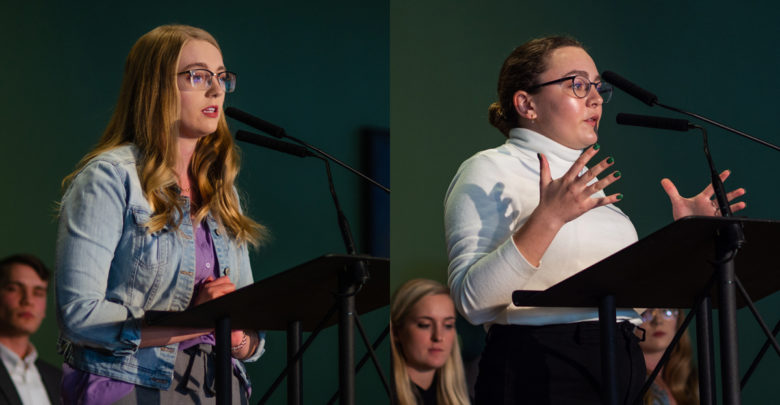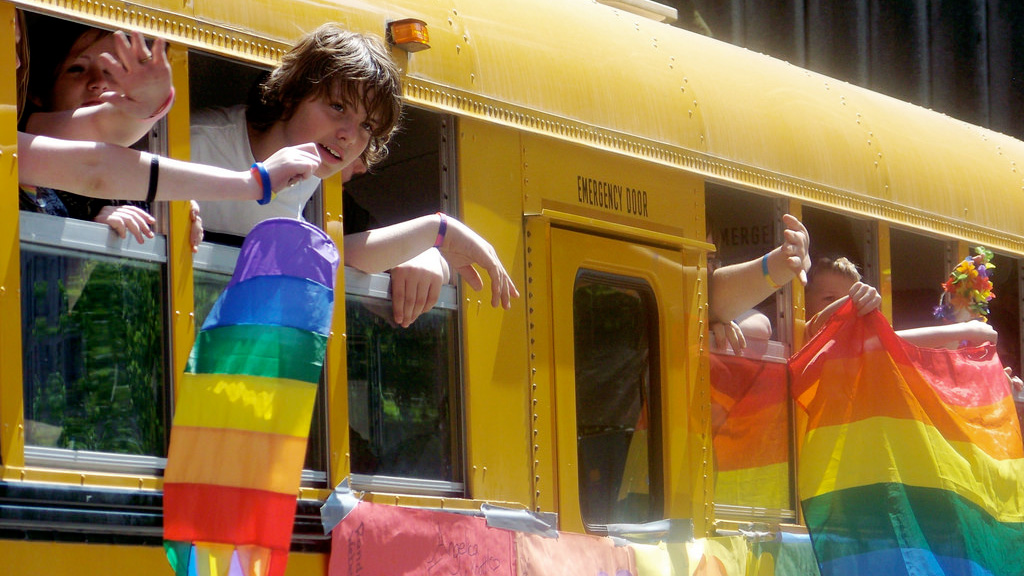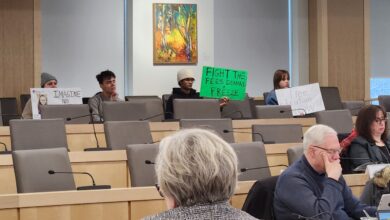VPSL candidates promise to bring grassroots advocacy to the role in a refreshing change of pace
Promises for on-the-ground action give hope for more concrete change
 Helen Zhang
Helen ZhangThe vice-president (student life) race began to heat up in the first SUBStage forum of the Students’ Union 2020 elections, with candidates Talia Dixon and Katie Kidd both promising bold grassroots action on the issues of sexual assault on campus, climate justice, and SU-Indigenous relations. While I do question the extent to which the candidates can deliver on these promises for grassroots action, it is refreshing to have candidates who are making bold promises on important issues that the SU has too often ignored.
The primary promise given by both Dixon and Kidd was to achieve action through grassroots advocacy. Dixon specifically drew upon her own experience as a grassroots activist many times during the forum, mentioning how it provided her with the experience to rally students against the recent provincial cuts to post-secondary education. She would further mention her activist connections when discussing the issue of free transit on campus, which the VPSL is mandated to do. Dixon emphasized her strong connection to Free Transit YEG to differentiate herself from Kidd, stating that free transit is a fundamental belief for her and that there is a “difference between a mandate and championing something.”
However, Kidd additionally promised to use grassroots efforts to achieve a variety of campaign promises, primarily relating to sexual assault on campus. The moment that best encapsulated this was when Kidd addressed the longstanding issue of having the University of Alberta hire a Sexual Assault Prevention and Assault Coordinator, as first recommended by a University report in 2016. In the boldest statement of the forum, Kidd asserted that the problem around sexual assault was that the Dean of Students “does not care” and that she would undertake a letter-writing campaign to the Dean to assure that action would be taken here. Further, Kidd promised to lead a campaign calling for the provincial government to open an inquiry into sexual assault on campus.
I do question the extent to which both candidates will be able to follow through on their advocacy promises. Often, advocacy can just be a vague term used to mask over a lack of detailed plans. Dixon did fail to provide meaningful details in regards to her advocacy plan to hire a sexual assault prevention and response coordinator. Advocacy can also be fruitless or harm existing relations, which Kidd risked by asserting that the Dean of Students didn’t care about sexual assault on campus.
However, despite these weaknesses, these calls for grassroots action were refreshing, promising bold change for an SU that badly needs it.
Too often, the SU can be a bureaucratic organization that is disconnected from the students it governs, with many important issues falling by the wayside. Many of the issues both Dixon and Kidd promised bold action on, such as climate justice, sexual assault on campus, and Indigenous relations, are all issues that the current SU has failed to properly advocate for.
The current SU executive almost avoided participating in the climate strike earlier in the semester, despite other SUs across the country supporting theirs. When faced with pushback from students, the executive only slightly modified their plans, marching instead as students, but not in their capacity as executives.
Another issue that SU has unfortunately failed to take seriously is that of sexual assault on campus. While the SU has been advocating for better services on campus, too often sexual assault can become an afterthought or buzzword for SU executives and candidates, to the detriment of those who are at risk of assault.
Finally, the SU has been facing criticism for their treatment of Indigenous students since my first year on campus, when then-president Marina Banister supported Bill 5, which faced strong opposition from the Indigenous students it affected. Even though the SU has attempted to improve relations, the issue has persisted throughout the years.
Given the extent to which the SU has presently failed to address serious concerns, the grassroots-based promises of both Dixon and Kidd, while potentially ambitious, are necessary in order to reorient the SU towards the issues that are important to students. As such, I applaud the advocacy and grassroots measures championed by the VPSL candidates, and hope they are successful in steering the SU away from the bureaucratic institution it currently is.




